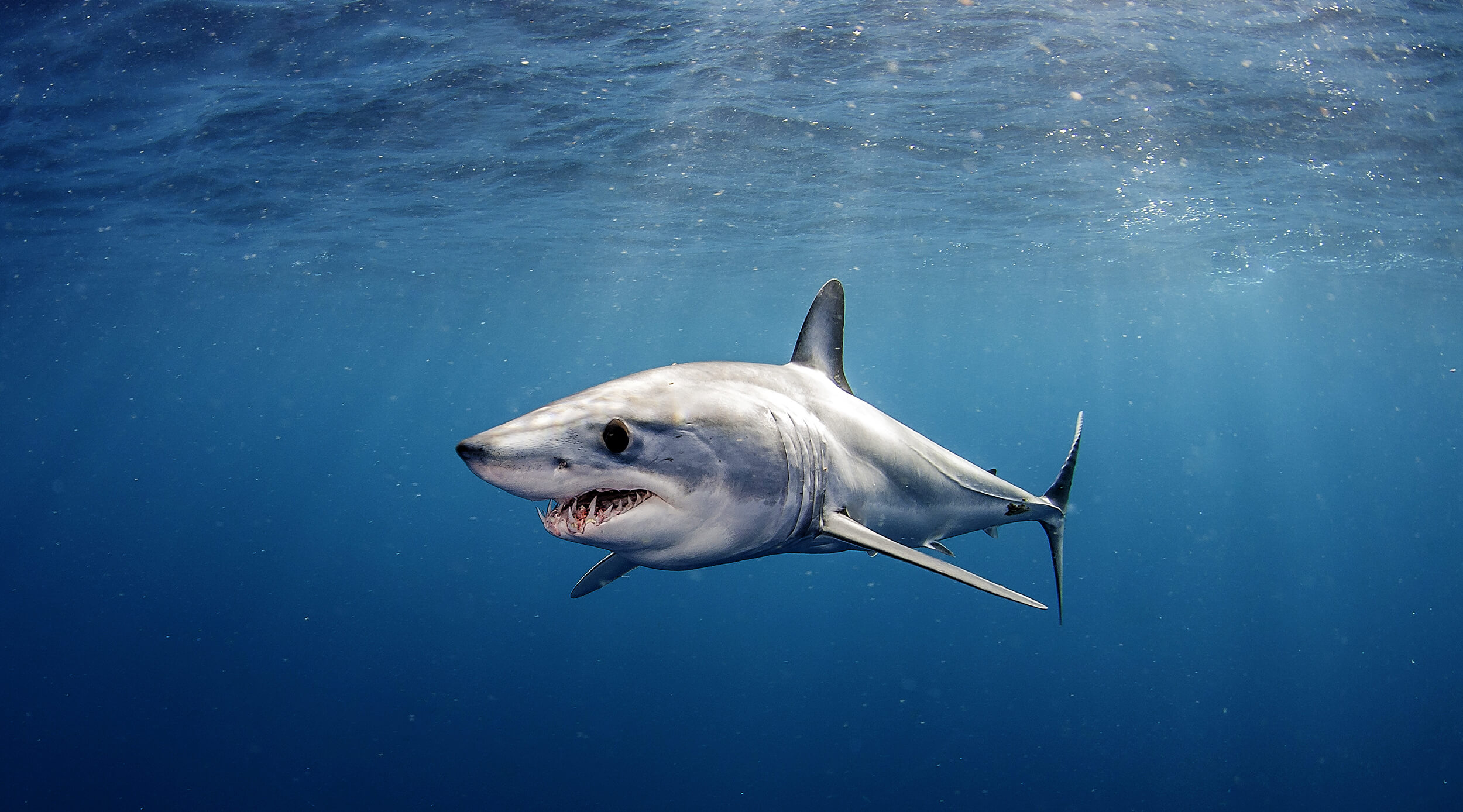Extraction of high-quality genomic DNA from the dermal denticles and fragment of tooth enamel of a shark has enabled identification of a specific shark…
Read MoreInternational Union for Conservation of Nature (IUCN) Red List assessments reveal growing human pressures on whale sharks, (Rhincodon typus), are putting them at an increasing risk of extinction. Whale sharks are listed as Endangered…
Read MorePrehistoric sharks grace the cover of Science Magazine…
Read MoreA team of marine scientists led by the Wildlife Conservation Society (WCS) has confirmed that southern Africa's most threatened endemic shark…
Read MoreOf all the shark fishing countries in the European Union, the fishers of Spain catch the most shortfin mako sharks, Isurus oxyrinchus, accounting for nearly half of all the North Atlantic landings…
Read MoreOur Djibouti Whale Shark Project has just published a paper that documents─for the first time─the presence of a leatherback sea turtle, Dermochelys coriacea, in Djibouti waters...
Read MoreScientists from the University of Exeter, the Zoological Society of London and Oceanswell, a Sri Lankan NGO examined the effects of the longstanding ban on fishing for thresher sharks in Sri Lanka…
Read MoreLarge-bodied hammerhead sharks are of conservation concern worldwide but protection of their populations requires knowledge of their distribution patterns…
Read MoreAn 18-year study provided new insights into how an ocean ecosystem can change following the decline of an apex predator…
Read MoreChimaeras are cartilaginous fish, also known as ghost sharks, rat fish, spookfish, or rabbit fish, found in all temperate oceans…
Read MoreIn Brazil, the largest shark meat importer worldwide, sharks and rays are traded as “cação” making it difficult to monitor what species are actually being traded…
Read MoreOn October 20, 2020, Dr. Jennifer Schmidt, Director of Research at the Shark Research Institute, reported that an ecological disaster is taking place in Djibouti…
Read MoreThe ocean is filled with microplastics so it is no surprise that marine animals, including sharks, are ingesting them. A new study investigated microplastics in four species…
Read MoreWater has a large thermal conductivity and specific heat capacity, and the body temperature of organisms living in the water is greatly affected by the water temperature…
Read MoreSharks were thought to have evolved with a cartilage-based skeleton before other types of fish formed a bony skeleton…
Read MoreBack in July 2019, a blackmouth catshark, Galeus melastomus, caught in trawl at a depth of 1,640 feet (500 meters) deep off Cape Carbonara, Southern Sardina, was unusual…
Read MoreTo date only the length of the legendary giant shark Megalodon had been estimated but now, a new study led by the University of Bristol and Swansea University…
Read MoreWhen we think of mangrove forests, seagrass meadows and saltmarshes, we don’t immediately think of shark habitats…
Read MoreA team of researchers affiliated with multiple institutions in the U.S. and the U.K. tagged 41 grey reef sharks at Palmyra Atoll and monitored their behavior from 2011 to 2014…
Read MoreWe leave our DNA everywhere and sharks do, too. This cellular material is known as environmental DNA or eDNA…
Read More




















